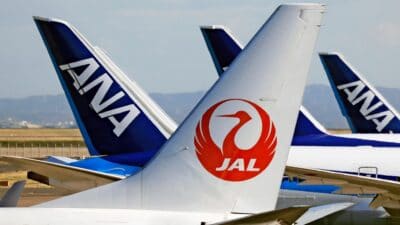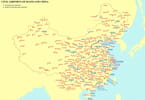The revelation that Nigerian national, Umar Farouk Abdulmutallab, who allegedly planned to blow up a transatlantic aircraft on December 25, was trained by al-Qaeda in Yemen, placed intense international press attention on the Gulf state and put its tourism industry under pressure. Despite this, Alwan Saeed Al-Shaibani, the vice chairman of the Yemen Tourism Promotion Board, tells eTN’s Kevin Rozario that he expects growth in 2010 in this exclusive interview conducted at Italy’s international tourism market (BiT).
What has been the tourism fallout from reports that Abdulmutallab was trained by al-Qaeda inYemen and also from the brief closure of some embassies in Sana’a in January due to a threat of attack?
Our tourism numbers are down by 60 percent (in January) compared to the same period a year ago. The media coverage from western countries has not been fair and has been exaggerated. We are not a safe haven for terrorists, and fortunately we are still seeing tourist flows from several markets including France and Italy.
That is a sharp fall nonetheless. Was this especially difficult given the tough year seen in 2009 for global tourism?
In fact, we did not suffer from the global economic downturn in the way other markets did. Tourism numbers hit 450,000 in 2009 compared to 410,000 in 2008, mostly led by traffic from the Gulf countries where many Yemenis have settled.
But with the poor January numbers, as well as a war in the north of Yemen and riots in the south, can you salvage anything from 2010?
I think you have to make a distinction between holiday and business traffic when you consider the rest of this year. Our best European markets for tourism which are, in order: Italy, Germany, France, and Turkey, may be affected. But we have also built up connections to eastern European countries, as well as Far East markets like Korea, Malaysia, and Hong Kong. We also expect to expand our Middle East business; a few months back Emirates increased its services to Dubai to six time[s] a week, while FlyDubai will launch 14 flight a week from March.
So you think new routes will compensate for falls in other areas?
The new routes are mostly business-led. Our national carrier, Yemenia, will also open the Chinese market in the winter season with three flights a week to Guangzhou. It should also be stressed that the war in the north is now over and this shows that the government has control of the situation. In 2010, we expect stability and better tourism flows by the final quarter. Combined with the extra business travel via new routes, we expect to top 2009’s 450,000 visitors this year.
WHAT TO TAKE AWAY FROM THIS ARTICLE:
- What has been the tourism fallout from reports that Abdulmutallab was trained by al-Qaeda inYemen and also from the brief closure of some embassies in Sana’a in January due to a threat of attack.
- But with the poor January numbers, as well as a war in the north of Yemen and riots in the south, can you salvage anything from 2010.
- It should also be stressed that the war in the north is now over and this shows that the government has control of the situation.






















